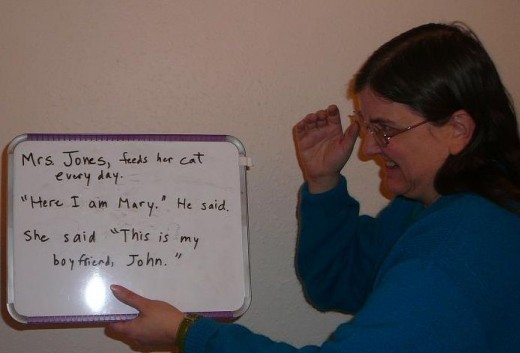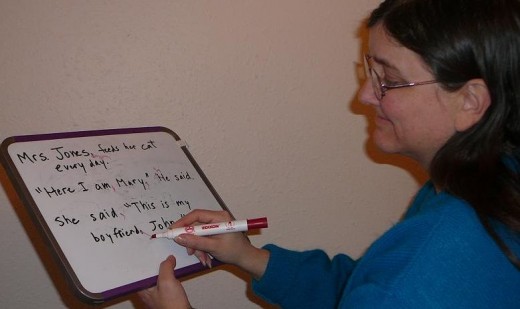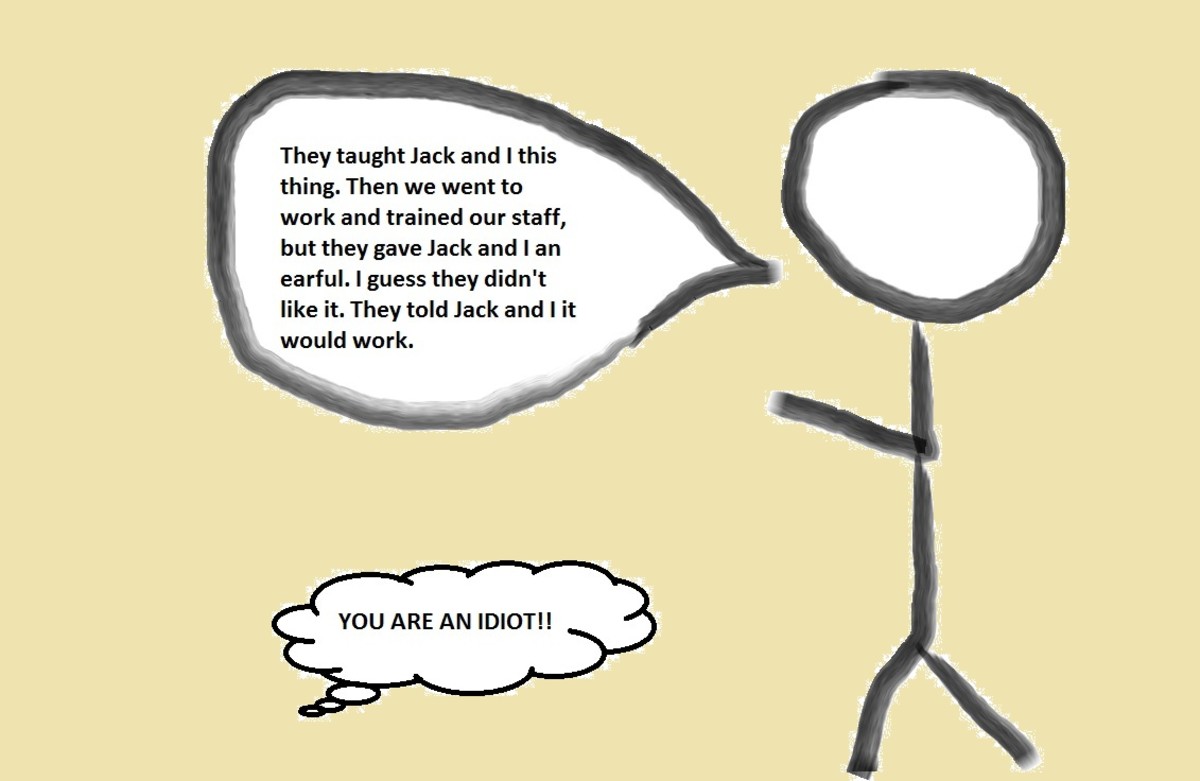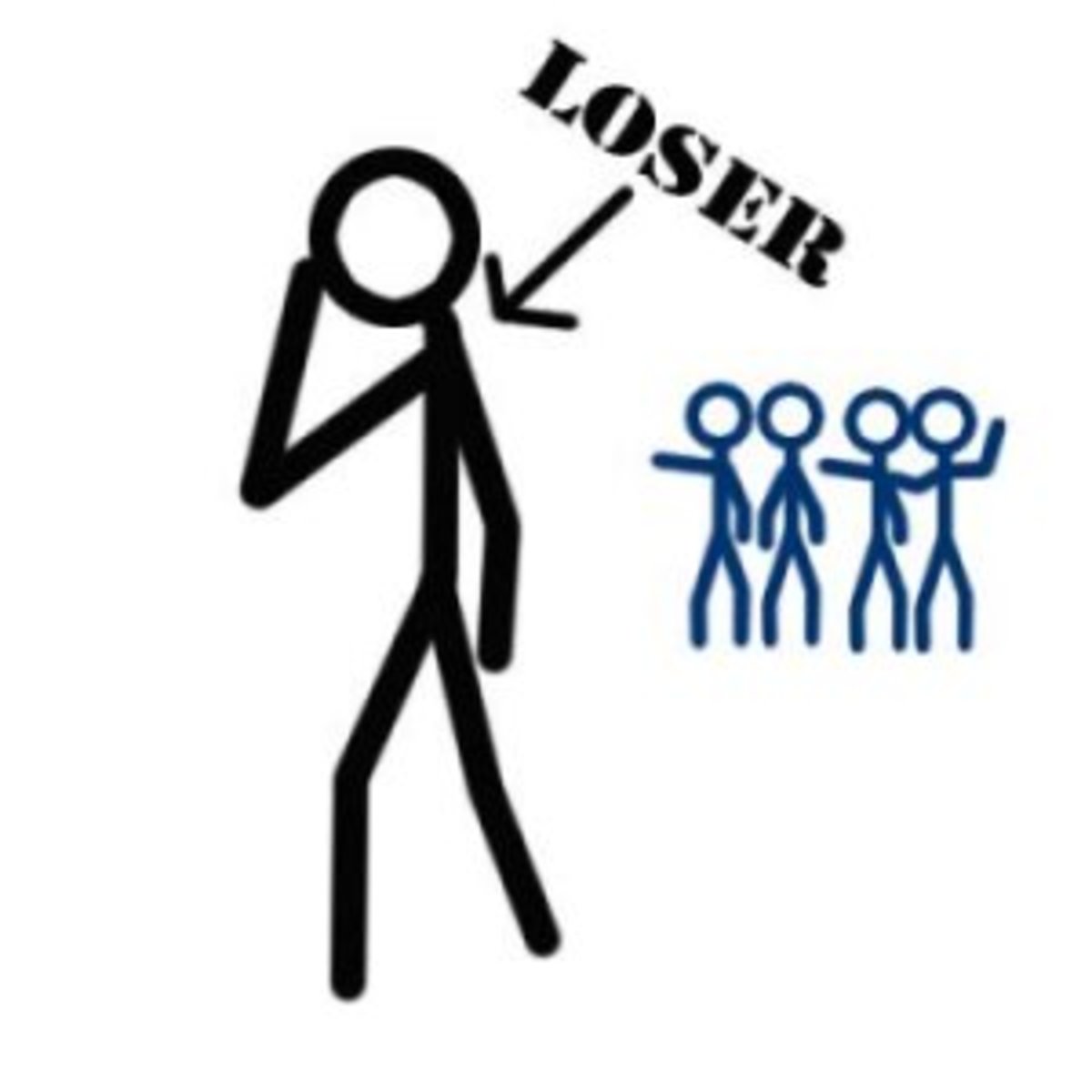Life Without Grammar: A New Babel
“And the Lord said, Behold, the people is one, and they have all one language; and this they begin to do: and now nothing will be restrained from them which they have imagined to do. Go to, let us go down, and there confound their language, that they may not understand one another’s speech. So the Lord scattered them abroad from thence upon the face of all the earth: and they left off to build the city. Therefore is the name of it called Babel.” –Genesis 11:6-9a.
Anyone else cringe over errors in writing?

Confessions of a Grammar Nazi
I was sitting in church reading a book by a fellow member when my friend Bob stopped by and asked, “As a writer, is it hard for you to read other people’s work because you can see where it could be better?”
He’d hit the nail on the head. I said, “Yes, as a matter of fact. I’m only in the introduction and I’m cringing over all the misplaced commas.”
Bob said
that musicians have the same problem when they listen to music because they can
hear every discordant note. Music is a hobby of mine, but writing is my
passion. Hence, I don’t usually catch wrong notes, but boy, do I catch errors in
writing! (Well, usually. See the comments below to learn what errors were originally published in this Hub.)
Perhaps I should characterize this passion for correctness as an editor’s eye rather than a writer’s. It used to be that writers were a rare breed. One used to have to submit to big publishers and wait for years on the hope of ever being heard. The upside of that was that your work would be sifted for quality and edited for perfection. The downside was that many good writers never stood a chance for the sheer number of competitors.
Now everybody, it seems, is a writer. All you have to do is put a few words together on a computer and click a button on a website. Or type up a whole book’s worth of whatever and self publish it cheaply, advertising it by electronic means and word of mouth. Everybody has a voice now, all singing loud and clear. And everybody, it would seem, is too busy shouting the words to notice that the notes are getting more and more off.
I’m not everybody. I’m one of the rare perfectionists some call grammar Nazis. I learned in high school how to write a sentence, a paragraph, even a novel without errors, and I never forgot it. Heck, I was writing more correct sentences in elementary school than the vast majority of people write today. The more I see commas in between subjects and predicates and apostrophes to indicate plurals, the more I shake my fist and cry, “What do they teach in these schools?”* High school and college graduates alike don’t know how to structure a sentence. The worst part of it is that if I volunteer to copy edit a newsletter, church bulletin, story, or anything else, the vast majority say no and the errors continue week by week, month my month, year by year. It seems nobody gives a flying fart!
Why not?
If I had the answer to that question, I might have more peace. It would seem that no one sees the errors. But grammar rules developed for good reasons. The reasons are understandability and ease of reading. What good does it do to have your voice heard if you can’t be understood? Not to mention it’s a matter of mutual respect. I’d hope people would respect themselves enough to write intelligently and respect their readers enough to not force them to strain over unimportant details so they can receive what is being said.
The Web We Weave
In tears, I lamented to my friend Mary that I felt useless, that my talents and abilities were wasted. She said that Internet texting has changed the use of our language. People send out just anything on the web. She said the language was becoming homogenous. I corrected her. “Doesn’t homogeneous mean all the same?” I said.
Mary nodded.
“If it was all the same, it would be fine,” I said. “But it’s just the opposite. Everyone is writing differently, disregarding all the rules. It’s the nature of language to change. But if everyone changes in different directions, it’s chaos. It’s—a new Babel.”
Mary said that people are throwing out all rules, including moral ones. She agreed with me that grammar mattered and applauded my sudden insight about the Tower of Babel. Why do I feel I have to apologize for caring with a passion about such things?
The Tower Revisited?
If we carry the parallel far enough, the common confusions of the language (all languages, perhaps?) may be seen as a judgment from God. It doesn’t seem to me like God coming down and working a destructive miracle. It seems more like people just being stupid. I’m not saying it matters much when you’re communicating with a friend on instant messaging and you make a typo or two. Of course, if you don’t catch and correct some typos, they can lead to huge misunderstandings. Magnify that problem hundredfold if you write an office memo, an open letter, or, heaven forbid, a book. So far, most writing is still understandable, but I often have to work at it. My work involves a lot of cringing, especially when what is written doesn’t make any logical sense, such as when the author of the “Twilight” series has her characters nodding full sentences. Even a celebrated and otherwise laudable bestseller like The Shack has people musing, smiling, and nodding spoken words. Musing is thinking, folks, and Mack wasn’t reading the lady’s mind. Your message is wonderful, William Paul, but an unemployed peon would like to say next time please use a comma between the person’s name and the sentence addressed to them. If you did, I could concentrate on the story and not go off on my rant.
And if we use the philosophy of The Shack, a common one in Christian circles, God is not causing this Babel experience. Sin, even grammatical sin, is its own punishment. We are freer to express ourselves to more people than ever in this time and age. But do we really want to go down the road of not being understood? If the story of Babel is any indication, we just might find ourselves unable to go back.
A New Reich
I suggest a different road. As a grammar Nazi, I propose a new reich--not a cruel, murderous one, but a sane and sensible one. I suggest we all make an effort to look back at the rules and follow them before it’s too late.
Who knows? Maybe we’ll find that rules aren’t so painful and useless to follow, and it might rub off on other areas of our lives besides communication.
Heil, grammar!
Relieved after fixing some mistakes

My Own Commitment Toward Alleviating the Problem
I know I can’t solve the problem of functional illiteracy everywhere it lurks. It may be worldwide, for all I know. But I can help one piece of writing at a time, by working as a freelance editor. I have already edited two books, and am looking for more to do. And I’m taking classes on editing and business to hone my own abilities. I’ll buy the accepted stylebooks and replace my missing copy of The Elements of Style, which is so small I can read in on the bus. And I’m publishing this article to spread awareness of the problem and point to the importance of careful writing.
What can you do to help prevent the destruction of communcation? Please share your thoughts!
* A quote from the professor in The Lion, the Witch and the Wardrobe, by C.S. Lewis.
Some Good Books that Deserve a Good Editor

Be Part of the Solution








